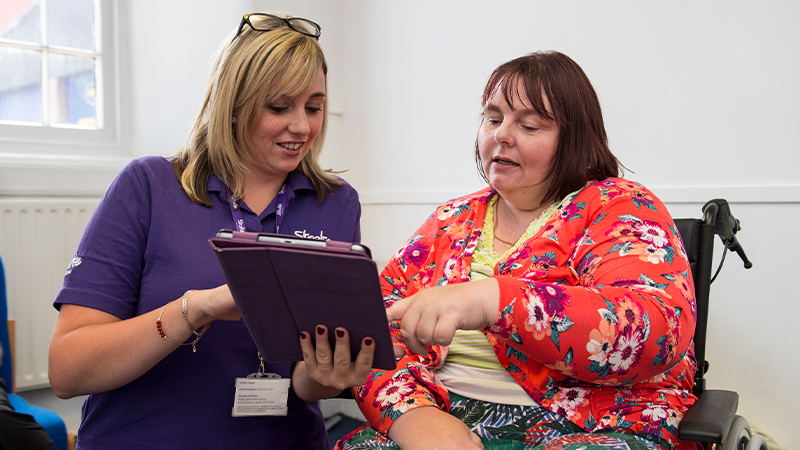Jennifer was only 18 when she had her stroke and her life fell apart. When Jennifer woke up in hospital she couldn’t say a word. Just like one third of survivors, Jennifer’s stroke had caused aphasia.
Aphasia is a language and communication disorder. It can be incredibly frustrating and being unable to express yourself can lead to feelings of isolation and loneliness. Family and friends can find it very difficult too.
Everyone’s experience of aphasia is different, and this is where your vital support comes in. Donations are crucial to run support groups where someone like Jennifer can feel understood, fund stroke research that will develop new treatments and provide materials like our information guides designed especially for people with aphasia.
Jennifer says, “People with aphasia can do wonderful things with the right support.” You can hear Jennifer read her letter in the video below.
1 in 3 stroke survivors will experience aphasia. Please donate today to help people with aphasia to communicate with confidence, in whatever way they can.*
Thank you for helping to rebuild lives after stroke.
Stacey and Andrea's story
After her stroke, 45-year-old Andrea couldn’t move the right side of her body and lost all her speech. Returning home after six months in hospital was bittersweet. While everyone was so pleased Andrea was home, her communication difficulties were a massive challenge for her family.

As her daughter, Stacey, recalls: “It was really difficult to get our head around aphasia. The Stroke Association was so helpful. They helped us understand what aphasia was, ways to help my mum communicate and how to communicate with her.”
Andrea was also helped by the local Stroke Café. “It has been so great for mum. She was able to meet new people in the same situation who understand and knew what she was feeling.”
*Your donations will help to fund vital work – such as research projects, the Stroke Helpline and support groups – and help stroke survivors and their families rebuild their lives.
